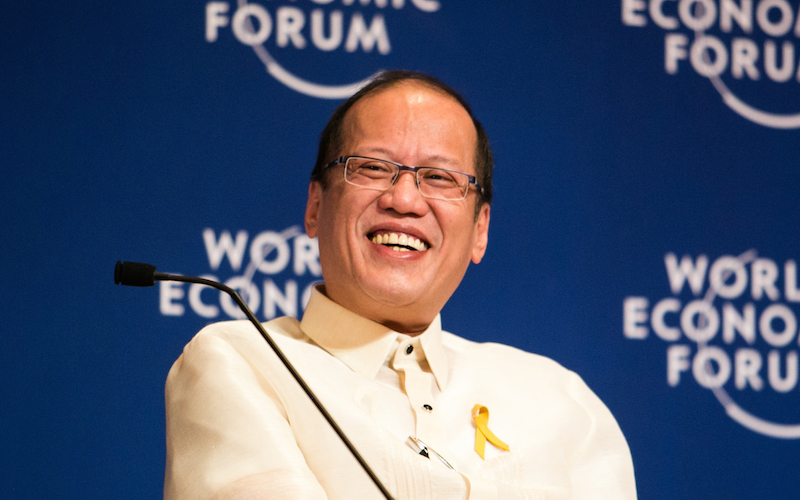
Circus Politics is Alive and Well in the Philippines
Anyone familiar with Philippine politics will recognize the circus-like atmosphere that prevails on an ongoing basis, and how that often manifests itself in the judicial arena. We previously questioned whether the plunder charges leveled against former Philippine President Arroyo would ultimately stand, or be torn apart by a combination of evidentiary weakness or a corrupt judiciary. When in 2011 the House of Representatives voted to impeach then Chief Justice Corona, we noted that sometimes the Philippine government can actually get things right. Now the circus continues with the motion to impeach President Aquino, with opposition politicians having sharpened their knives in an attempt to draw some blood from the Teflon President.
Last week, a number of impeachment complaints were lodged — and are still being lodged — against President Aquino, chiefly on the ground that he used the “Disbursement Acceleration Program” (DAP) as his own “presidential pork barrel.” Pro-impeachment forces accused the President of using the DAP to “bribe,” “reward,” and “favor” politicians and allies, including Senator-judges who voted to convict then Chief Justice Corona in 2012. The impeachment complaints charge Aquino for culpable violation of the Constitution, “usurping the power of the Legislature,” and for making a “mockery of the principle of separation of powers.”
The move to impeach the President gained traction on July 1st, when the Philippine Supreme Court voted 13-0 to declare the DAP partly unconstitutional for violating the doctrine of separation of powers. In particular, the Court declared void those portions of the DAP which allow “cross-border transfers” of “savings” of the Executive Department to augment various budgets of offices outside the Executive, as well as using these “savings” for the funding of projects and programs not covered by a specific appropriation in the national budget. The July decision followed a November 2013 ruling which declared unconstitutional the “Priority Development Assistance Fund” (PDAF), which authorized legislators to intervene in various post-enactment stages of budget execution of congressional pork barrel.
In a speech last week, Aquino chastised the Court’s partial declaration of unconstitutionality of the DAP, insisting it was done in all “good faith,” with all the right intentions, and with the right results.
Aquino pointed out that the DAP formed part of his economic stimulus package, and was predicated on the spending power of the government, traditionally reposed in the Executive Branch.
Strictly based on legal substance, the question of whether the President can “augment” existing projects and projects not found in the annual national budget, but which are expected to be implemented in the current year, remains ripe for judicial scrutiny. The DAP can arguably find a plausible foundation in statutory codes enabling the Executive department to flex its traditionally reposed spending power. Even without statutory formality, the DAP may arguably find basis in constitutional law. The DAP case is, in fact, still pending reconsideration at the Court.
The more pressing problem for Aquino, however, is whether the House Committee on Justice –whose chair and members are known to be his staunch political allies and who led his impeachment drive against Corona — would on one hand expectedly dismiss the string of complaints for being “insufficient in form” and “in substance,” or on the contrary consolidate and endorse the impeachment complaints for consideration at the House plenary level. Once at the plenary, a favorable vote of one-third of all House members would be needed for the impeachment complaint to be elevated to the Senate. The Senate would then convene as the “Impeachment Court,” with Senators sitting as “Senator-jurors” following American constitutional practice.
Similar to American constitutional exceptionalism, under Philippine constitutional exceptionalism, whether the Committee on Justice or the lower House should vote for or against impeachment is ultimately a political question. Under a House, and with House committees, dominated by Aquino allies, it seems unlikely that any of the impeachment complaints will pass muster. Aquino is well supported by a majority in the Senate. For an impeachment bid to succeed, the official must first be impeached by the House — under a “one-third” standard — and then, after trial, convicted by the Senate — under a “two-thirds” standard for conviction.
Given that Aquino enjoys strong support from both the upper and lower houses of Congress, the entire bid to impeach him may be seen as an exercise in futility. Even staunch opposition congressmen in the House are reluctant to endorse the impeachment complaints, increasing in number through time, because it is no secret to them that even the House Secretariat will choose not to transmit the signed complaints to the House Justice Committee.
So it seems that pro-impeachment forces are stuck with front desk politics. Given that political dynamics and the political tempo may drastically change when President Aquino delivers his fifth State of the Nation Address on Monday, we think that even while the numbers are in his favor, it may still be too early to tell. Public confidence and surveys show that Aquino’s popularity ratings have dropped to an historical low. It could be that the tide of mass political opinion may rule the day.
In addition, Aquino’s chastisement of the Supreme Court decision was seen as an ill-timed institutional attack against the justice system, if not bordering on causing a constitutional crisis and constitutional standoff between the Executive and the Judiciary. Given the Court’s recent decisions declaring void wholesale entrenched pork barrel systems (known under many names since the time of former President Marcos), the Court’s social legitimacy is at an all-time high. This is especially so for a Court whose current Chief Justice is, or was, known to be an Aquino ally.
Is the “Rule of Law” alive and well in the Philippines? We consider “pristine” Rule of Law to be too much to expect from a landscape that has historically been, and continues to be, politically charged. Impeachment and impeachment courts are not “courts of justice” in such a landscape, but they do form part of the larger system of checks and balances when the justice system is in system failure. While systemic ‘injustice’ is nowhere near what it used to be in the Philippines, system ‘imperfections’ remain entrenched.
For a country now enjoying investment grade status — largely attributable to the work done by President Aquino and his cabinet — the current episode of the ‘political circus’ is a stark reminder that while some things have changed for the better in the Philippines, “business as usual” endures in some important parts of Philippine society. Historians may well look back at this unfortunate spectacle and wonder just how much has really changed in the new darling of the Asian foreign investment community. Whether this impeachment drive ends in failure may prove to be an objective litmus test for whether or not the Philippines deserves its investment grade rating, and indeed, whether that rating will endure when President Aquino’s term ends.
This article was originally posted in The Huffington Post.


